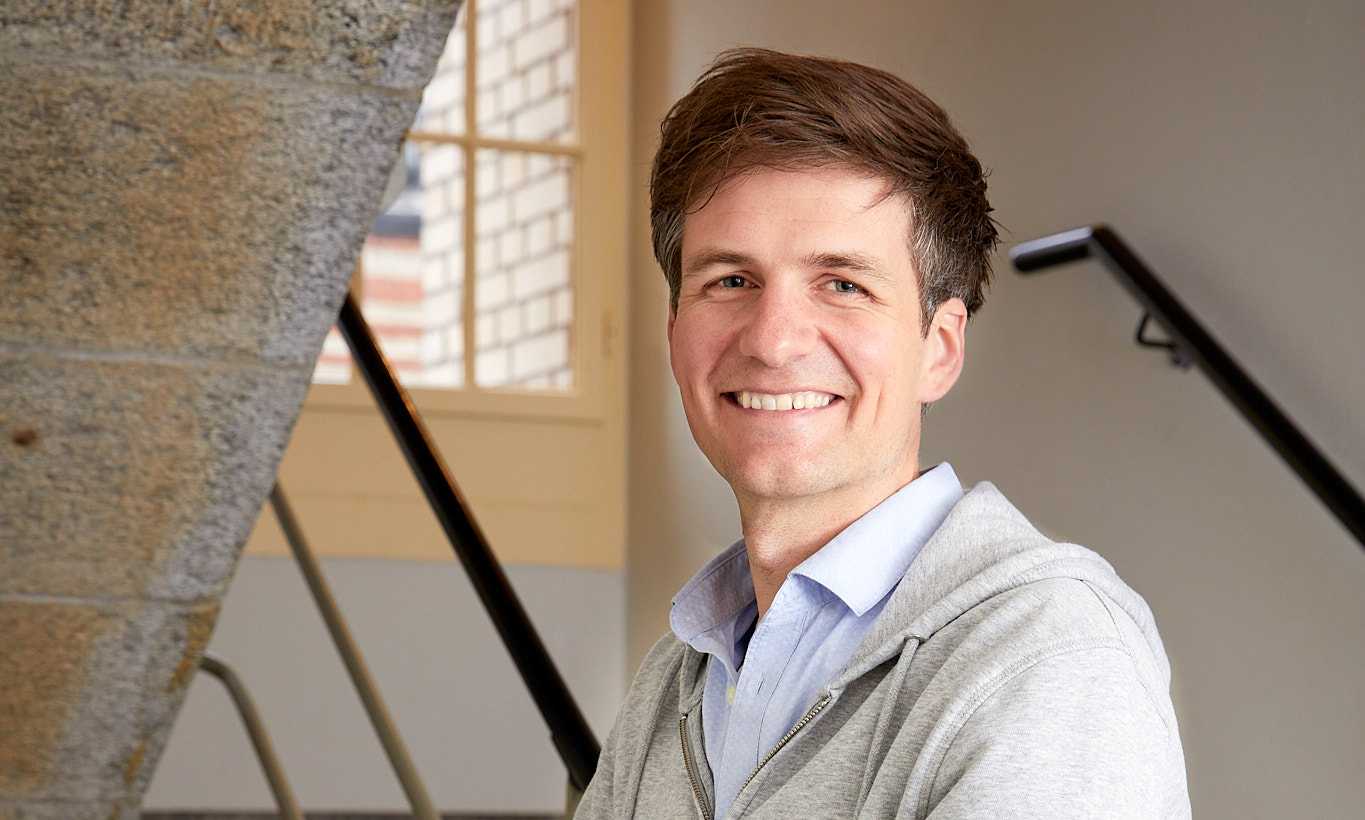“I am living the dream of every scientist at Planted”
Patrick Rühs studied food science and graduated from ETH Zurich with a PhD in food process engineering. Today, he is the Head of Science at the start-up Planted that produces plant-based meat with great success. Patrick talks to us about his career and what motivates him in his daily work.

Why did you decide to study at ETH?
I did my Abitur (A level equivalent) at the German school in Mexico City. It was obvious to me at that time that I wanted to go to a university in Europe. ETH Zurich, in this wonderful and diverse city, was my number one choice. My father, who also studied at ETH, also recommended the university. Additionally, ETH enjoys an excellent reputation far beyond the borders of Switzerland.
And why did you decide to study food sciences?
I started out with biochemistry but the course in food sciences was actually the perfect combination for me - science in a real-life system, in other words applied science. I found that very exciting. And: I have always loved food.
When you were a child, what did you want to be?
Over the years, I wanted to be a computer scientist, then I was interested in marine biology and at one point I even considered a degree in physics. I have a passion for science always really enjoyed science. Right from a very young age, I have been fascinated by how things work and why they work in the way they do.
Where does your interest in plant-based meat, and your work in general stem from?
There are several reasons for that. Through my work, I want to do something positive for now and the future. I actually enjoy eating meat but not at any price. I believe that plant-based meat gives us the opportunity to experience the same pleasure that you get from eating meat but without the negative impacts on the environment that meat production has and without animals having to be killed for this pleasure. Current methods of meat production and our levels of meat consumption are not sustainable. These days, we buy meat that doesn't even look like animal meat anymore. When I try to explain to my daughter that she is eating a dead animal she disagrees and says that it is only a sausage or a chicken nugget.
At external page Planted, I’m able to do research on a very sustainable topic, invent something new, and do so in a business environment. That cannot be taken for granted in the food sector. Food is a very conservative topic. We continue to eat in the ways we are familiar with from our cultural heritage. But this is changing.
I am fascinated by imitating the structure of meat using an approach called “biostructuring”. In other words, we combine modern methods of structuring materials with micro-organisms. This allows us to create a new generation of foods, where the structure and taste closely resembles that of meat. We also use no additives and only natural ingredients.
So I am living the dream of every scientist at Planted. I can be highly creative and very scientific at my work. At the same time, my work influences the products that we sell. I can directly apply everything that I learnt during my time at school and university. I have impact on the everyday lives of other people and do something good for society. That is a huge motivation for me. I particularly enjoy challenging processes in food technology. Just because we have been doing something for years doesn't mean that it is right. I am trying to redefine the rules of the game by fully rethinking processes. And I have the possibilities to do this at Planted.
What plans do you have for the future?
We dream of producing a large piece of meat that you can put on the barbecue and that will stay crisp and juicy. At present, only 1-2 percent of the population eat meat alternatives. We would very much like to convince meat eaters that our products are not just better for the environment but that they are also healthier and tastier. I want to prove that meat alternatives can also taste better or at least as good as animal meat. Eating meat alternatives shouldn’t mean compromising on taste.
At the moment, we are focusing on mimicking animal meat. In the future, I could well imagine that we will be working on meat alternatives which displays the positive culinary aspects of meat but do not necessarily imitate the shapes of meat as such. But that is still a long way off.
What tips would you give anyone studying at ETH today?
During your studies you will learn a lot that is useful for life in general, for example, understanding complex relationships at speed and applying what you have learnt. A degree from ETH offers excellent prospects on the job market, which is a huge benefit. Keep that thirst for knowledge that you get from your studies. Contacts you make at university will also be important in the future. And I would certainly recommend taking the opportunity, as a researcher, to manage a project yourself. That is a unique experience.

With their plant-based meat substitute, external page Planted aims to provide a healthier, tastier and more sustainable option.